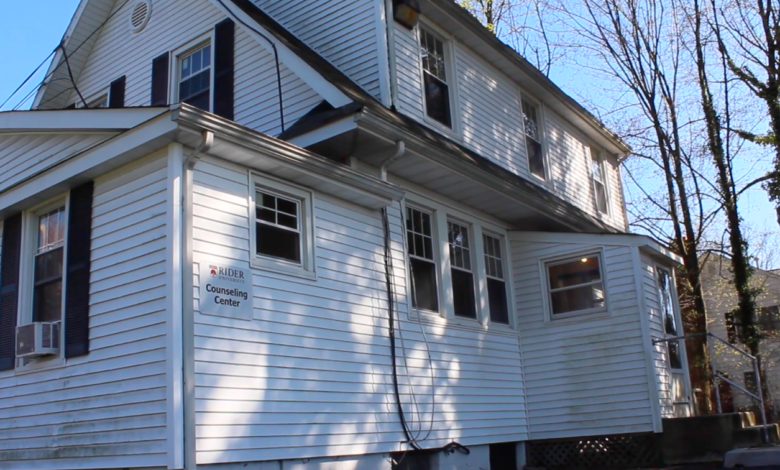
Counseling searches to rebrand mental health care
By Kaitlyn McCormick
DESPITE the unassuming appearance of Zoerner House, home of Rider’s counseling center, just through the bright red door, a rebranding of college mental health services is stirring.
Anissa Moody, staff psychologist and director of the counseling center, is looking to change conversations surrounding student mental health, starting with how it should be treated.
A shift in mindset
As a generational shift in what the healing process looks like occurs, Moody wants to show students that Zoerner House is staying current.
“I think students aren’t aware that we’re in line with that and a lot of services that we provide are definitely aligned with modern-day treatment and healing. … Therapy’s not only individual work, sitting in a chair one-on-one with a person,” Moody said.
The center has pivoted to include a number of creative services and approaches that take on a more holistic approach to wellness, aiming to treat the individual as a whole. These tactics include tools like a weightless chair and light therapy, stress relief activities like coloring books and sand therapy, as well as an outdoor garden space for ecotherapy, one of Moody’s personal favorites.

“When people are depressed or anxious, doing something or participating in a process outside of themselves…represents a healing process,” she explained.
Moody and her team of counselors also offer a plethora of what they call “safe spaces,” which allow students to connect with their peers who may be struggling with or have interest in similar issues. These spaces include those designed for Black indigenous people of color (BIPOC) and LGBTQIA+ students, male students and students who just want or need more resources for communication and interpersonal skills and more.
Staff psychologist Jill Siletski, who works closely with many of these safe spaces, said, “We have a really bad business model, that we want people to stop seeing us because they’re better. … It’s all about giving [students] skills to be able to help cope in the moment.”
Through each room of Zoerner House, the personalities of its counselors shine through, from Siletski’s mood lighting and emotion-wheel throw pillow to counselor Kyle Pawlowski’s array of colorful fidget toys for students to use.
“One of the things I’m very proud of is that, not only do we have diversity in terms of ethnicity, but we have diversity in terms of gender, in terms of age in the counseling center, so students have access to see providers who represent different parts of themselves,” Moody said.
New tools, new outcomes
The counseling center isn’t shifting solely in its treatment, however. As the ways students interact with counseling services change, so does the best practice for supporting appointments, scheduling and outreach.
Moody’s staff, like many in today’s digital age, have utilized Instagram for student outreach to provide followers with event updates, daily advice and more.
The account and most of the center’s outreach initiatives are run by its graduate assistants, who also spread awareness about new initiatives each month. For April, they are focusing on sexual assault awareness and hosting events all over campus throughout the month to reach students.
Last fall, the counseling center also moved to outreach student athletes specifically, embedding doctoral intern Richard Felicetti within the athletic department.
Felicetti said, “Instead of coming to the counseling center, we kind of bring the counseling center to the athletic center.”
Moving forward
Through its outreach efforts, array of therapeutic tools and individual and safe space counseling options, Moody and her staff have tried to provide opportunities for every student that walks through the door.
Siletski said, “We really try to tailor your experience to fit your needs.”
Moody, standing in the community garden with the flowers blooming in the center’s designated plot, said, “We’re a full-fledged center that focuses on emotional wellness, and we’re proud of that.”


